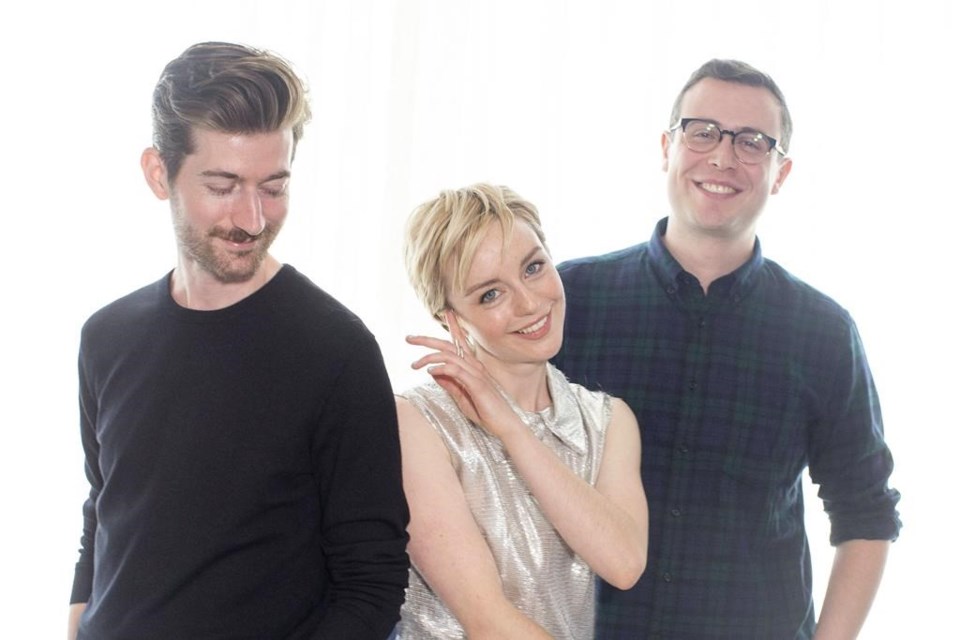TORONTO — Canadian filmmaking duo Yonah Lewis and Calvin Thomas say their new film, "White Lie," is set in the moral grey zone of online deception.
We all construct distorted versions of ourselves on social media, the writer-directors say. But when taken to the extreme, these digital doppelgangers can overshadow our true selves, blurring the bounds of virtual enhancement and fraudulent deceit.
Their Hamilton-set psychological thriller centres on one such social media cipher. Katie Arneson, played by Vancouver actress Kacey Rohl, is a university student who wins the sympathies and crowdfunding support of her classmates during her fight against cancer.
But she's not really sick, or at least not physically. She's faking the disease for social clout and financial gain, even shaving her head and buying drugs to lend the lie credibility. But her constant cover-ups start to catch up with her as she tries to outrun reality.
Lewis and Thomas spoke to The Canadian Press at last fall's Toronto International Film Festival about the real-life scams that inspired the story, the motives behind online malingering and the challenges of writing an unsympathetic female character. "White Lie" is available for download on digital platforms.
CP: How did you approach writing a protagonist who does something so despicable?
Lewis: We knew we didn't want her to be a villain, and that was sort of important to us. We wanted her to feel more like a real person. So not super black and white. We wanted her to be in that kind of murky grey area that most people actually exist within. Not perfectly good, not perfectly bad. But we knew that we were fascinated by the people who did this kind of thing.
CP: Female characters are often asked to act as a film's moral conscience. Were you playing with those expectations?
Lewis: Absolutely. And I think we were also seeing a lot of pushback from people who didn't like that in a script. When we would show people it early on, they would have problems with her as a character in a way we didn't feel they would if she was a man. We can think of countless examples of films with (men) as 'unlikable' as her, if not worse, that people love... Yet, they all seemed to have problems with it being a woman. Not that they would say that.
CP: Was there a real-life example of this fake illness phenomenon that piqued your interest?
Thomas: There's so many cases, and I'm sure so many cases that go unreported as well. Through social media, it's very easy to lie, to do things on Facebook or GoFundMe... We were most drawn to people who were doing it in a more extreme way, changing their physical appearance, shaving their head, like Kacey does for the film. That kind of lying face-to-face with people was far more dramatic and interesting to us for a film.
CP: We watch Katie try to pull off this high-wire scheme, but her motives are never made explicitly clear.
Lewis: We thought that it was kind of too simple to say, this one thing happened to her when she was six, and as a result — boom —15 years later, she shaved her head and faked cancer... It's not an origin story. It's not her doing this for the first time. Because we start so late (in her lie), we were interested in seeding in lots of little things that might give you clues as to why you think she's doing it. But we didn't want to just sort of hit the nail on the head.
CP: What do you think people get out of these scams?
Lewis: There's many things people are getting out of it, really, at the end of the day. There's the money, but they're not getting that much of it. So there has to be something else. And most of that seems to be that they're getting attention, that they're feeling loved and cared about in a way that most of us want, but don't always necessarily get.
This report by The Canadian Press was first published July 22, 2020
Adina Bresge, The Canadian Press



